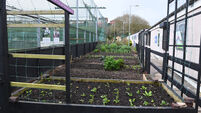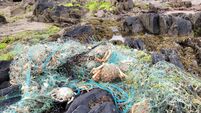The green boom: How sustainability became big business for Irish brands

John Murray and Simon Jackson of Modern Botany, at home in Lowertown, Schull, West Cork. Picture: Michael Mac Sweeney/Provision
Last month, an announcement from two major Irish retailers was met with widespread praise for their stance on sustainability. Brown Thomas and Arnotts removed all plastic-based cosmetic glitter products for sale across their beauty halls and websites as part of their ‘Positive Change’ sustainability programme.
It highlights the Irish public’s appetite for a more sustainable and planet-friendly shopping experience. While it seems a small thing, Brown Thomas and Arnotts point out that when glitter is washed away, it can enter our water systems, contribute to ocean pollution and damage our ecosystems.











